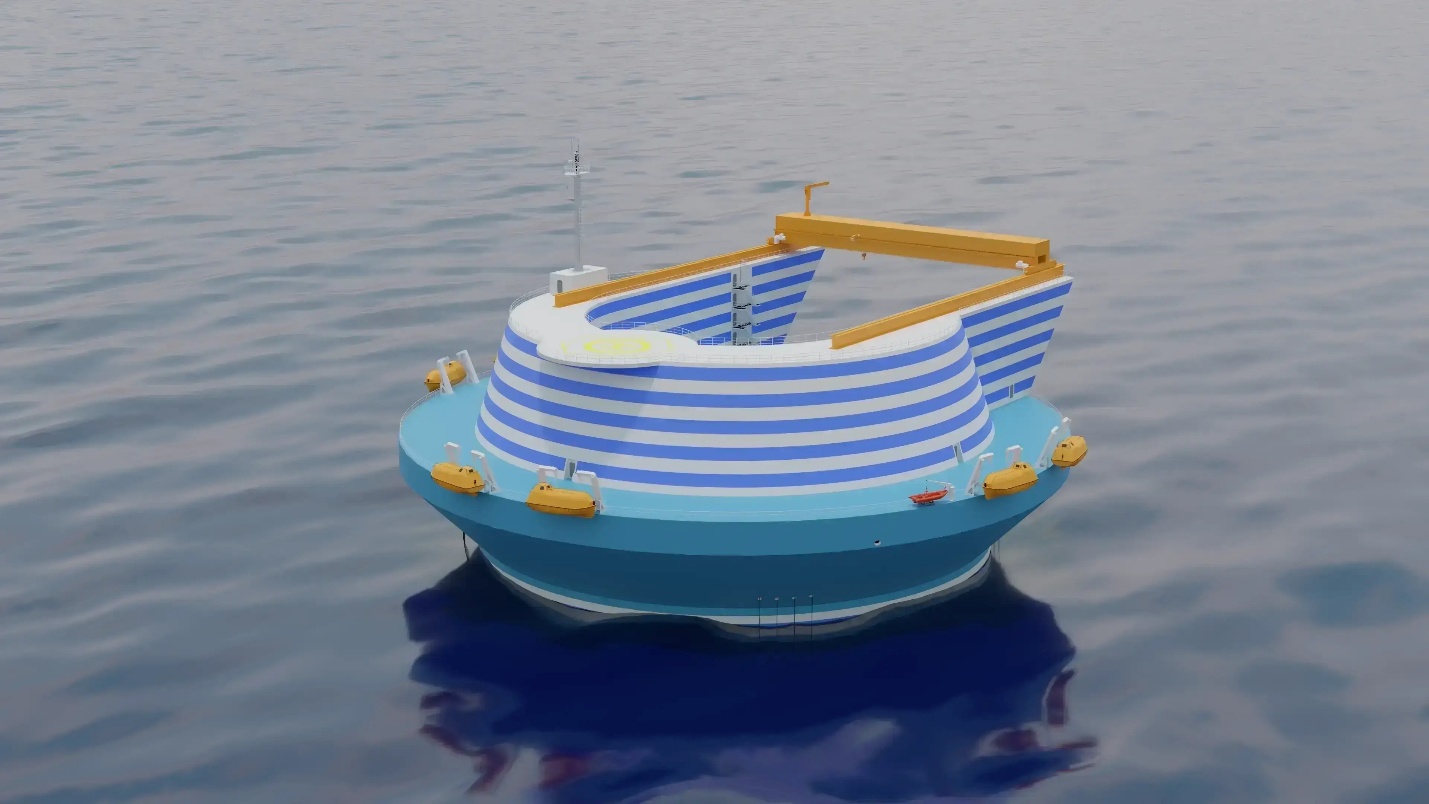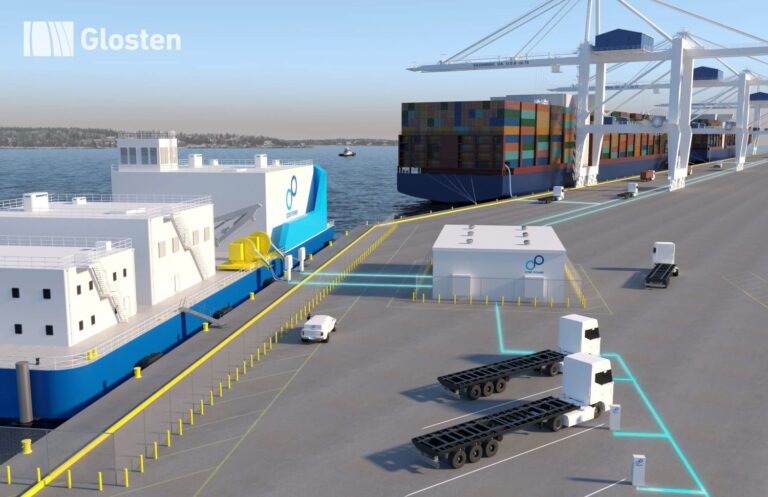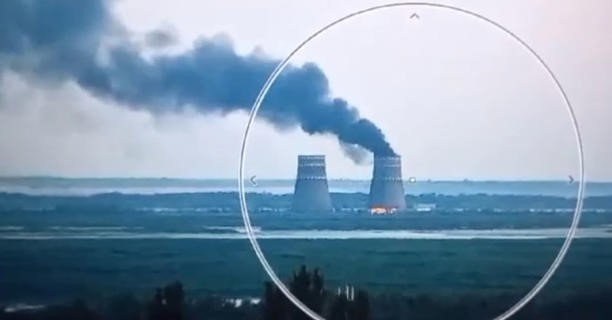Core Power maintains that FNPPs present a better way to scale nuclear energy by creating centrally manufactured and transportable barge-based power plants to place and operate offshore.

Another concept version of a floating power plant. (Image: Core Power)
Quotable: “The marine industry has experienced a massive push to decarbonize, and Core Power’s FNPP offers an effective and practical means to meet that demand,” said Morgan Fanberg, Glosten’s chief executive. “Glosten’s job is to turn Core Power’s vision into a design that demonstrates the practicality of providing reliable, zero-emissions nuclear power to port facilities and has a defined path to regulatory approval.”
Mikal Bøe, chief executive of Core Power, said in a January 29 news release, “Nuclear fission is a well-understood and practiced process. It allows us to access an enormous energy resource safely, reliably, and on-demand without emitting greenhouse gases. Over 80 percent of the cost of nuclear power on land is in civil construction, with reactors and power systems accounting for less than 20 percent. FNPPs will be shipyard-manufactured and mass-assembled, ensuring delivery speed and low costs. Using FNPPs to power ports solves the electrification challenge and creates local energy security.”
Technology elsewhere: In January, Russia’s Akademik Lomonosov—the world’s first FNPP—delivered its 1 billionth kilowatt-hour to the isolated Arctic network and completed its first fuel cycle, Nuclear Engineering International reported. The FNPP began commercial operation in May 2020, providing power to nearby Pevek (population, 4,000); owner Rosatom has said the plant can serve a region with a population as large as 100,000.
According to Nuclear Engineering International, Rosatom has plans to deploy another FNPP at Cape Nagleynyn, an artic mining site owned by Russia.
About Core Power: The U.K.-based company formed in 2018 and has offices in Washington, D.C., and Tokyo. Core Power stated on its website that its market “is that of advanced nuclear energy technology for ocean transport and heavy industry.”
The company added that it currently delivers emission-free energy for floating industrial production and deep-sea shipping but wants to expand into the “game-changing” nuclear energy deployment field of FNPPs.
“[FNPPs] offer flexible power supply, providing clean electricity for local grids, heating, cooling, and [electric vehicle] charging. Their offshore nature enhances safety, granting immunity from earthquakes, tsunamis, and volcanoes. FNPPs also allow for rapid deployment, enabling faster implementation to meet urgent energy needs. This swift deployment is crucial in supporting countries’ efforts to achieve their decarbonization goals,” according to Core Power’s description.
Core Power hosted the international summit New Nuclear for Maritime in Washington, D.C., in 2023, bringing together stakeholders in maritime nuclear opportunities.
About Glosten: With offices in Seattle, Wash., and Providence, R.I., the company describes itself as a “full service naval architecture and marine engineering consultancy with over 65 years of experience successfully taking on one-of-a-kind marine projects.”
Although the project with Core Power is currently in the concept phase and is being designed with the intent to serve a nonspecific port in the southern United States, Fanberg said, “We’re taking a very thorough and deliberate approach, making sure we’re performing the necessary risk-based assessments to maximize safety as well as considering the practicalities of implementation.”











